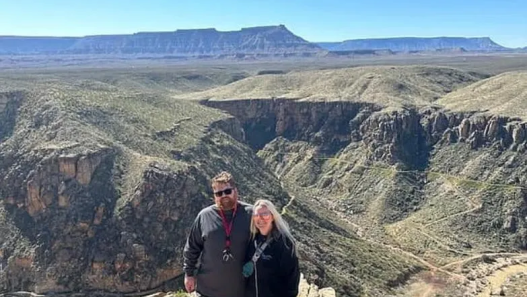Even the gentlest dogs have their limits, and sometimes, the things they dislike might surprise you. Dogs experience annoyance differently from humans. While we might think a hug is adorable, or that rushing them on a walk is fine, your dog might quietly hate it. Common things dogs dislike include hugs, being restricted from sniffing, lack of routine, and more.
Even the most patient dogs may tolerate certain behaviors out of love—or because they don’t want to assert dominance. Some situations, like visits to the veterinarian or grooming, are unavoidable. No two dogs are the same; what one dog hates, another might enjoy. However, understanding your dog’s dislikes and making minor adjustments can help make life more comfortable for them.
01. Hugs

Those adorable photos of people hugging dogs may not tell the full story. Many dogs, especially those unfamiliar with someone, don’t enjoy hugs. Holding a dog around the neck or body can be perceived as a threat.
Most dogs can tolerate gentle hugs from trusted people, but tolerance doesn’t mean enjoyment. A better approach is to let the dog initiate affection and pet their back or chest instead.
Some dogs genuinely like hugs, but you need to understand your dog’s boundaries. Watch their body language: if they lean back, avoid eye contact, yawn, lick their lips, show worried expressions, or perform calming signals, they are likely uncomfortable.
02. Getting in a Dog’s Face or Invading Their Space

Much like hugs, dogs generally dislike humans looming over them. Imagine someone standing over your face—how comfortable would that feel? Avoid touching your dog’s face, towering over them, or rushing toward them, especially if they don’t know you well.
If you need to touch your dog for practical reasons, like cleaning their ears or brushing their teeth, go slow, gentle, and reward them with treats or praise. If your dog shows calming signals, fear, or aggression, step back immediately. Always exercise caution to prevent bites.
03. Preventing Sniffing During Walks

Walks are more than exercise for dogs—they’re a chance to explore the world. Dogs rely primarily on their sense of smell to investigate, whereas humans often rely on vision. Forcing your dog to walk without letting them sniff or mark territory can be frustrating.
Think of it as someone dragging you through your favorite shop without allowing you to browse. Next time you walk your dog, give them plenty of time to explore their surroundings.
04. Lack of Routine and Rules

Dogs thrive on structure, even if it doesn’t always seem apparent. Disobedience often results from unclear boundaries. Consistent training provides stability, and daily routines help your dog feel secure.
Feed at the same time every day, maintain regular exercise schedules, and establish predictable daily activities. Over time, your dog will appear happier, more confident, and better behaved.
05. Yelling and Harsh Punishment

No one likes being yelled at or harshly punished. Dogs may not understand our words, but they can sense our emotions. Sensitive or timid dogs may become anxious or fearful when subjected to yelling or strict discipline.
Fear is not respect, and harsh methods do not strengthen bonds. Over time, constant yelling may lead to desensitization, where the dog ignores commands altogether. Positive reinforcement is far more effective.
Guide your dog to perform desirable behaviors rather than scolding. Commands like “leave it” or “stay” redirect behavior effectively. Reward obedience consistently.
06. Dressing Them Up

Unless accustomed from puppyhood, most dogs dislike being dressed. Some can tolerate simple clothes like a shirt, but many resist anything on the head or paws.
If clothing is necessary for warmth, start with lightweight items and pair them with treats. Gradually introduce sweaters, jackets, or boots, always observing body language for signs of discomfort.
07. Strong Scents

Dogs’ sense of smell is between 10,000 to 100,000 times more sensitive than humans’. While they enjoy exploring scents, strong fragrances or chemicals can irritate their noses.
Avoid spraying directly on dogs. If using medicinal sprays, apply on a cloth first. Homemade products like perfumes, hairspray, air fresheners, or cleaning agents should be kept away and must be non-toxic.
08. Isolation or Neglect

Dogs are social animals and typically dislike being alone. Some dogs are comforted by the presence of other dogs; others prefer human companionship. Severe isolation may lead to separation anxiety.
Dog owners have responsibilities—work, errands, travel—but dogs cannot comprehend your schedule. Spend as much time as possible at home, engage in bonding, maintain daily routines, ensure sufficient exercise, and provide mental stimulation. If frequently traveling, consider a trusted pet sitter or re-evaluate pet ownership fairness.
09. Forcing Them Into Uncomfortable Situations

Dogs may refuse situations they find stressful: baths, vet visits, car rides, or encountering certain people or animals. Forcing them can elevate stress levels, sometimes causing more harm than good.
Gradual exposure with rewards for calm behavior is the better approach. Slowly increase exposure to triggers and reward composure. Severe fears may require professional help from a dog trainer or animal behaviorist.
10. Emotional Ups and Downs

Life has highs and lows, and dogs sense your mood due to their deep bond with you. Stress, depression, or sadness can affect your dog, leading to mirroring behaviors like anxiety, lethargy, or frustration.
Maintain a consistent lifestyle, spend quality time, and provide stimulation. Dogs excel in animal-assisted therapy because of their emotional sensitivity. Walking your dog can benefit both you and your furry friend.



















